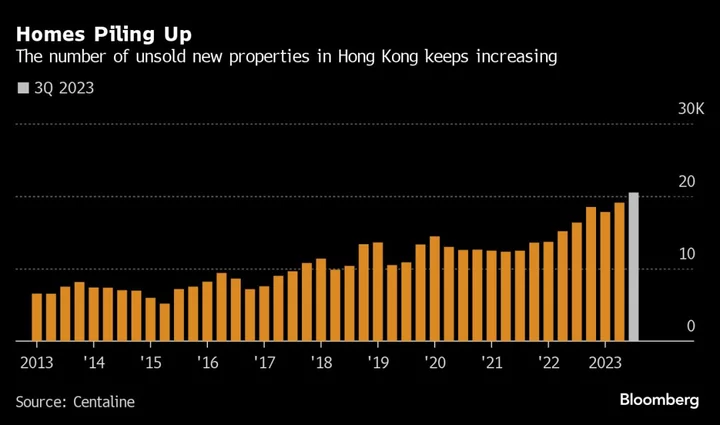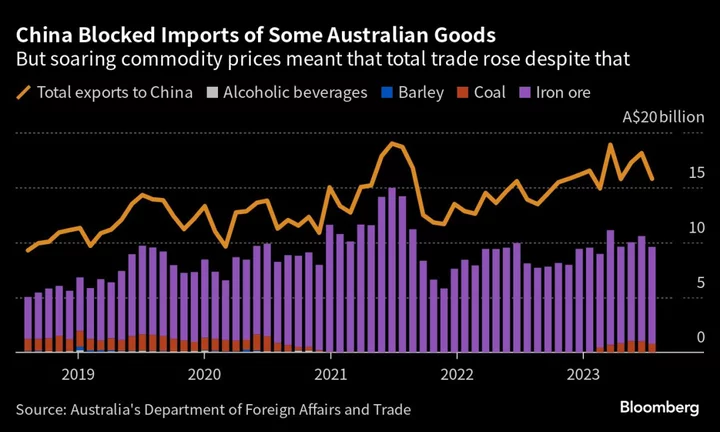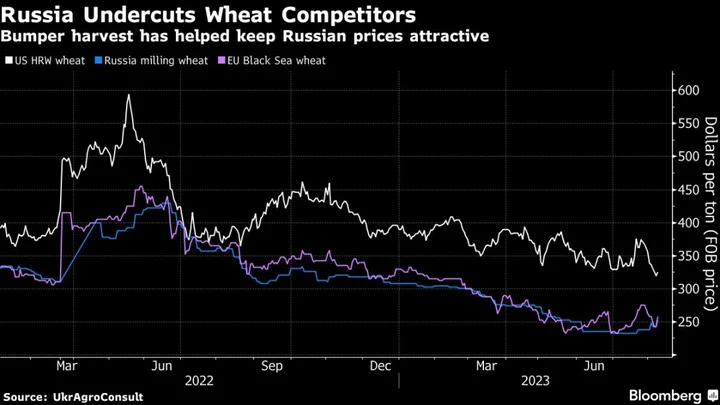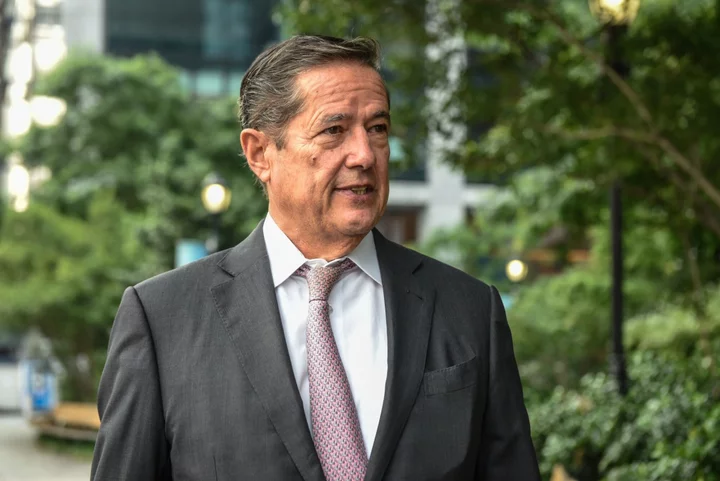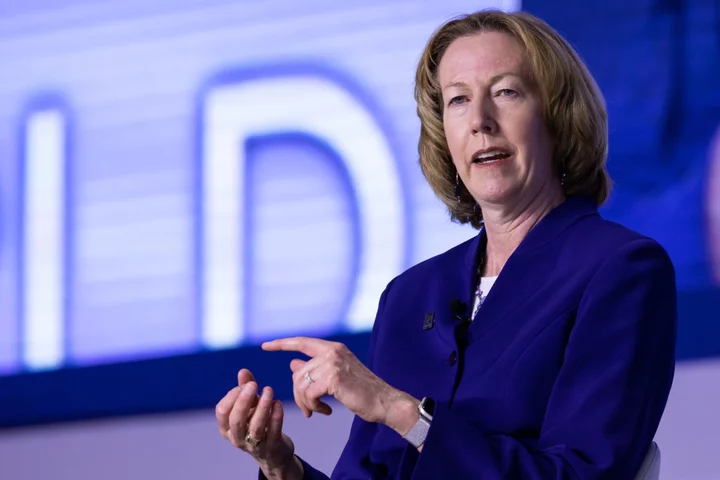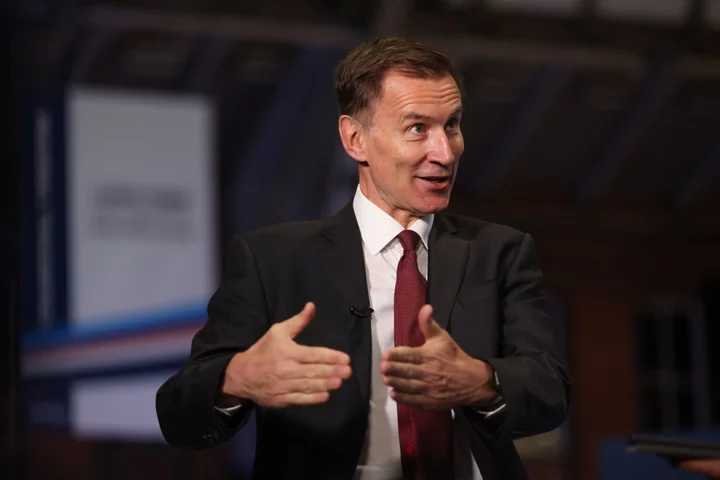Hong Kong’s property developers are racing to sell homes with a tactic they haven’t had to use for years: deep discounts.
Real estate companies are cutting new home prices, pummeled by a weak economy and rising interest rates. Buyer hesitancy is so strong that even deeply-discounted foreclosure auctions attract few bidders. Data from Centaline show that 20,483 new properties were vacant in the third quarter — the most in nearly two decades.
CK Asset Holdings Ltd., owned by tycoon Li Ka-shing, was one of the first to bow to the new reality when it offered its Coast Line II project in the Yau Tong area at prices not seen since 2016. The strategy worked — the project was oversubscribed by more than 30 times.
The overwhelming response, compared with the relatively lackluster market, sends a clear message to CK’s peers that a real estate reckoning is here, and discounts are inevitable.
Hong Kong’s residential market has long been one of the least affordable in the world, bolstered by ultra-low borrowing costs and limited supply. Even after 2019’s political unrest and Covid lockdowns, developers could still command 10% premiums on new buildings over nearby apartment blocks.
Real estate firms are now pricing apartments 10% to 20% lower than the peak of a couple of years ago, said Roen Yeung, senior associate director at Centaline Property Agency Ltd.’s research department. With buyers remaining cautious, Centaline expects new home transactions this year to drop to 11,000, the second lowest in almost a decade.
Real estate firms have to compete not just with each other but existing homes as well. Smaller companies have been the most affected, as they usually have less cash than larger peers and higher loan rates.
“Given that supply is high, developers are adopting fast sales strategy,” said Patrick Wong, an analyst with Bloomberg Intelligence. “When the funding cost is so high, there’s no benefit for them to hold the properties. It’s better for them to use the proceeds to pay back loans or get interests from deposits.”
In September, K&K Property Holdings Ltd., a private boutique Hong Kong developer, offered its first batch of apartments for Sutton at a 10% loss, Commercial Radio Hong Kong reported at the time.
“Some small and medium developers may have relatively high leverage so they need to raise cash to pay back banks,” said Mark Leung, an analyst at UBS Group AG. “So there can be more room for discounts, which would affect market sentiment.”
Some of the local developers with high gearing include Far East Consortium International Ltd., Paliburg Holdings Ltd., Kowloon Development Co. and Wang On Properties Ltd., with Far East recording a leverage ratio of 245%, according to Bloomberg Intelligence.
When Road King Infrastructure Ltd. and Shenzhen Investment Ltd. started sales at their mass-market development in Tuen Mun area in September, the average price per square foot was 11% lower than another project in the area introduced six months before. The two mid-size Chinese developers’ net debt-equity ratio stood at 61% and 48%, respectively, well above the risk ratio of Hong Kong’s larger firms; local giant Sun Hung Kai Properties Ltd.’s ratio was 18% in June.
Hong Kong’s real estate industry is waiting for the Chief Executive’s annual policy address on Oct. 25, before deciding how to promote projects, according to Wong from BI. The government could announce cuts for property stamp duties, Sing Tao reported Thursday.
The government recently hinted it may ease property curbs introduced in the early 2010s. Industry participants have been calling for the removal of certain property taxes, including a 30% stamp duty on buyers who don’t have permanent residency, and a 15% levy on residents who already own a home.
Even if any policies are announced, Hong Kong developers still face challenging times.
“The new measures may boost sentiment, but I don’t think it will reverse the market,” said Yeung from Centaline. “Developers will have to lower their prices if they want to increase their sales.”

